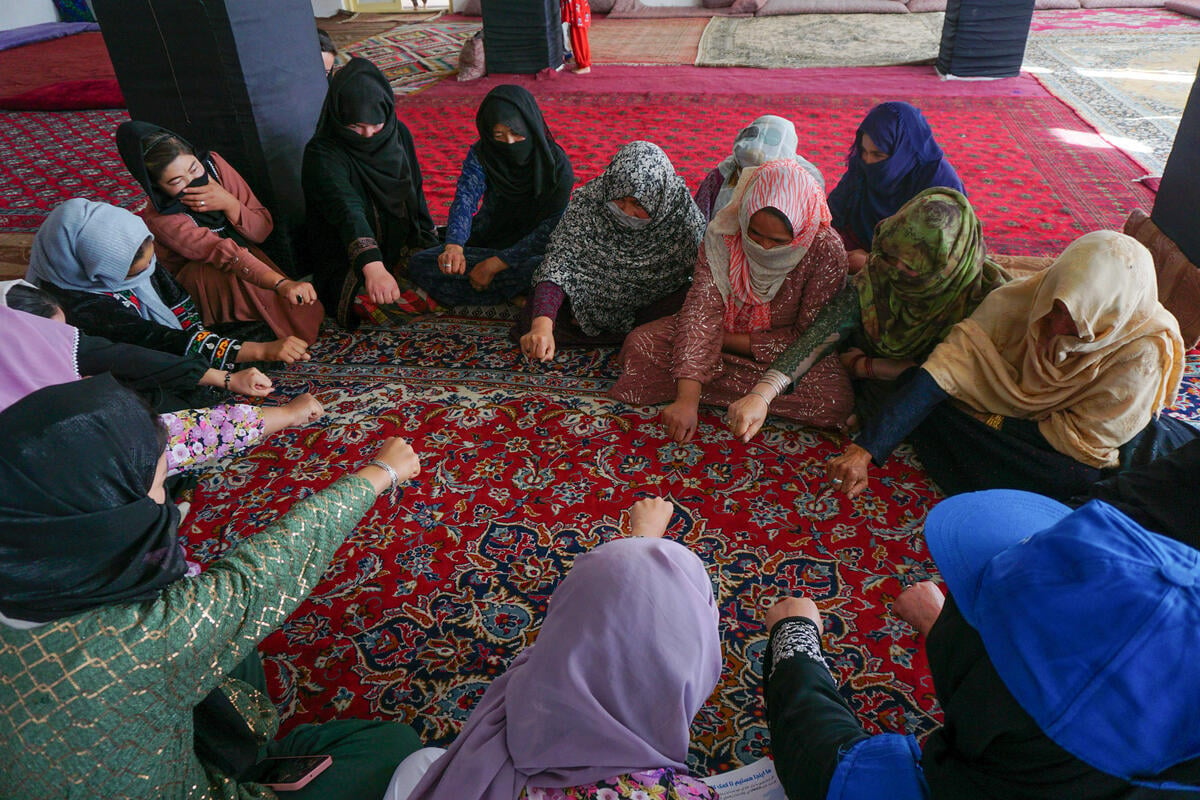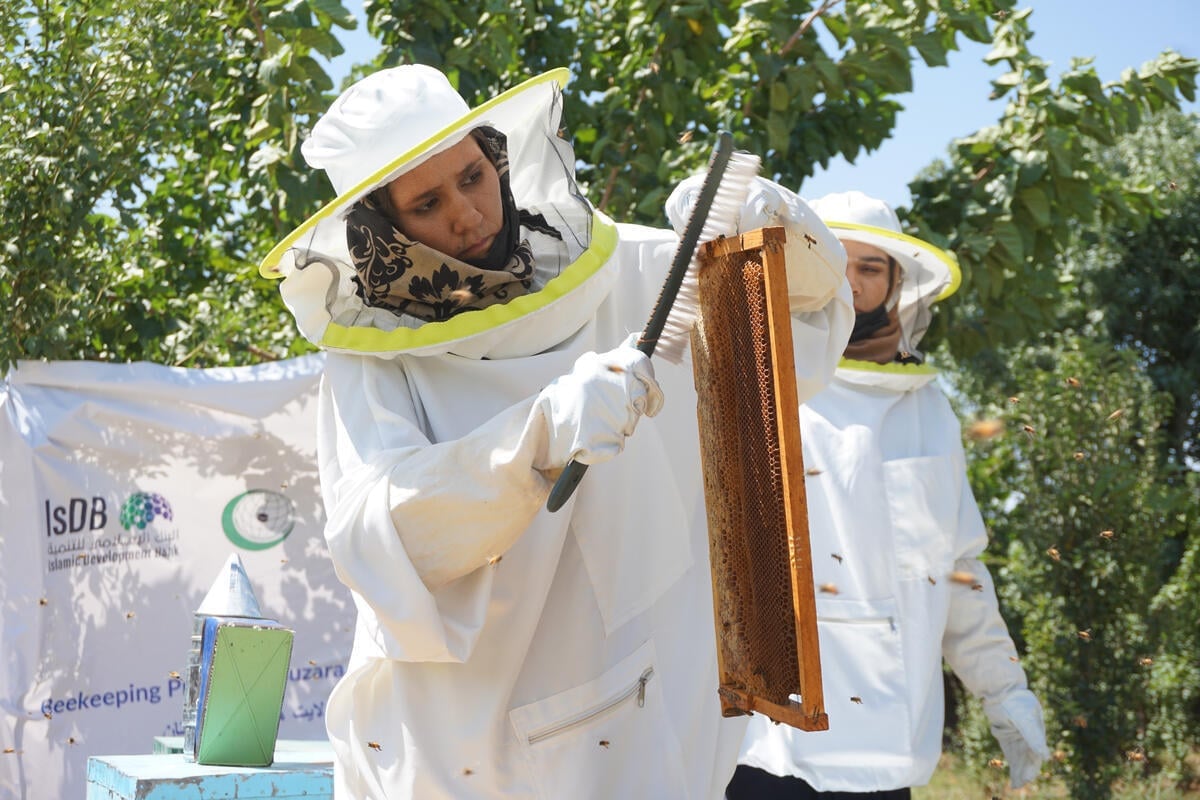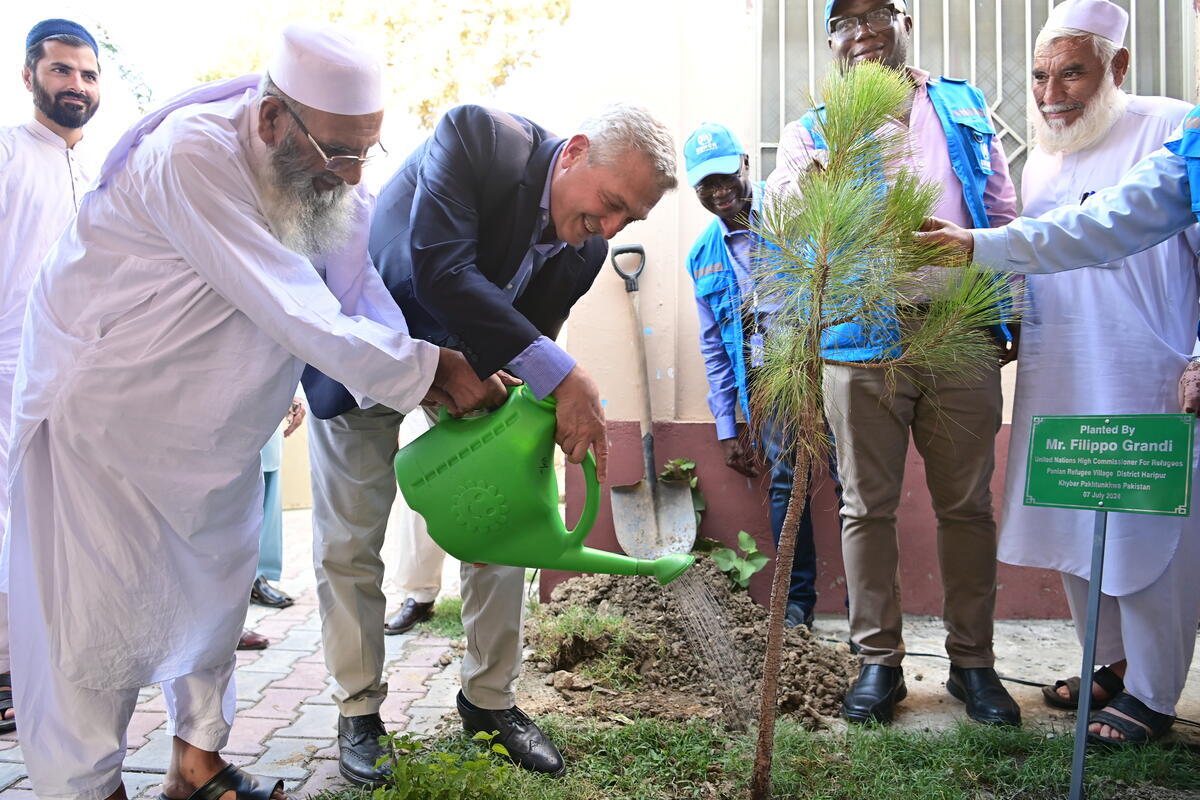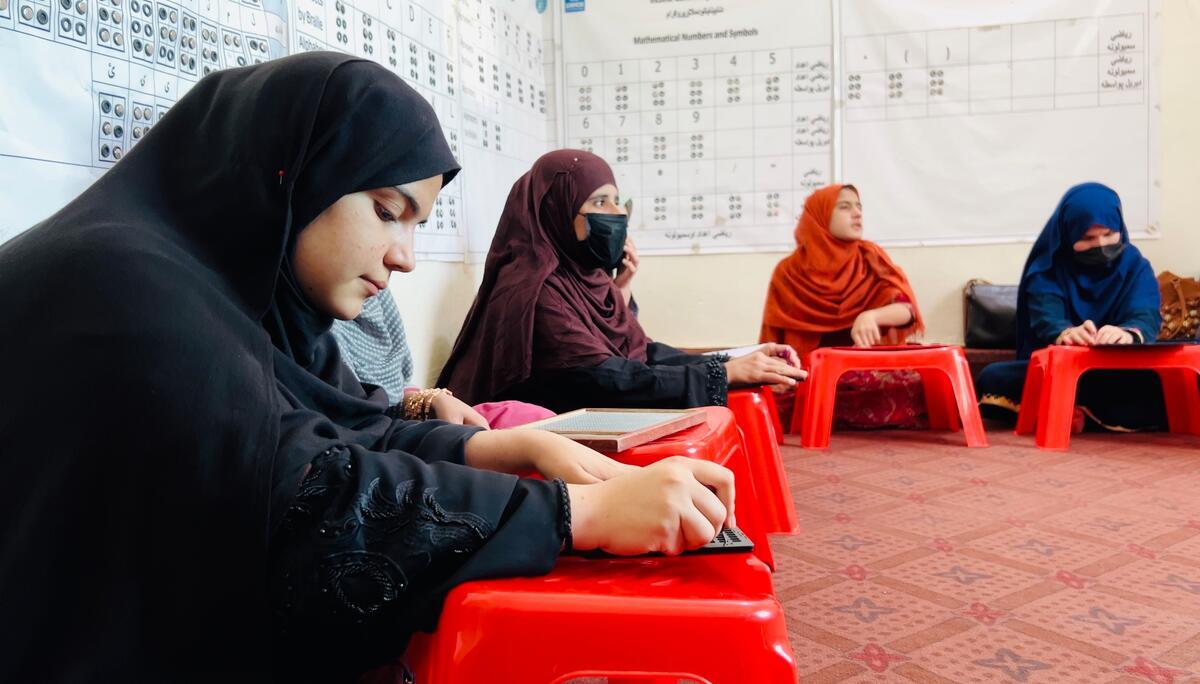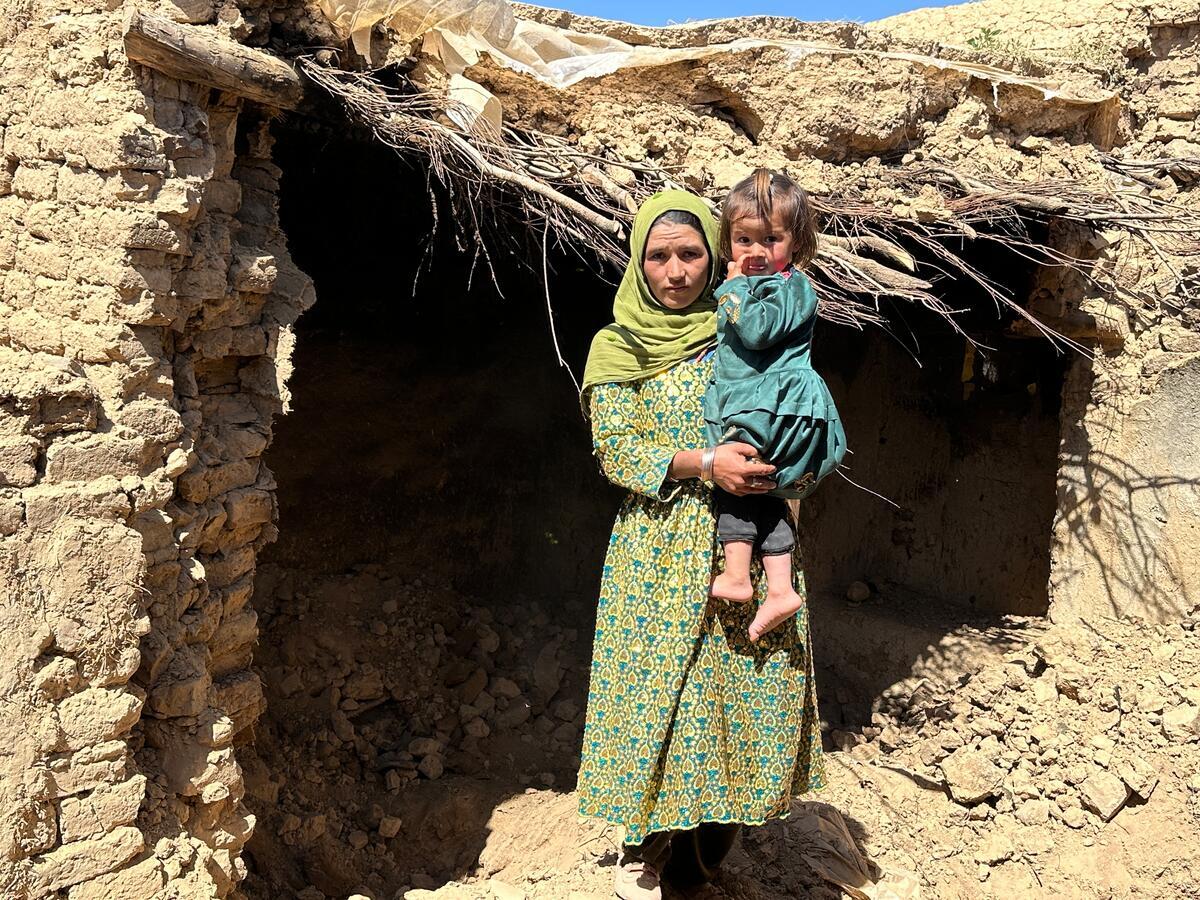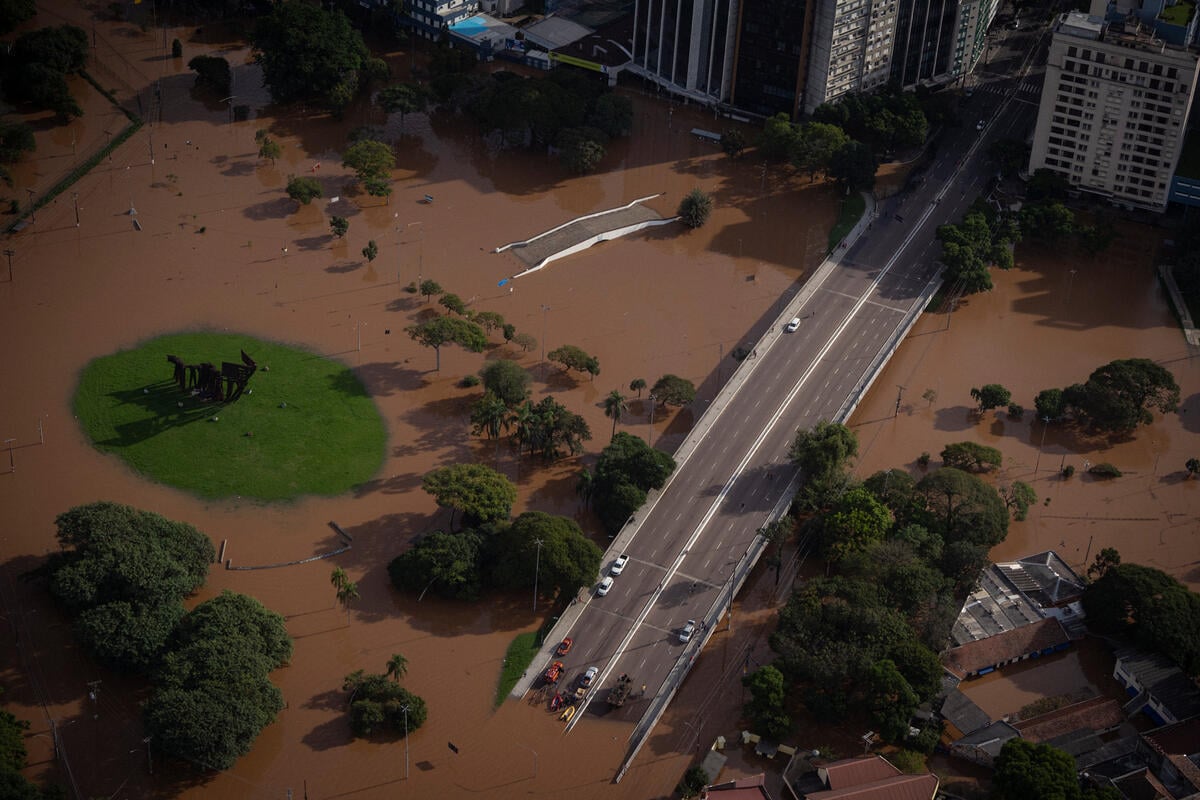Aid arrives in northern Afghanistan; security at Makaki camp slightly improved
Aid arrives in northern Afghanistan; security at Makaki camp slightly improved

HAIRATON, Northern Afghanistan, Nov. 14 (UNHCR) - In what United Nations officials hope will be the start of a major aid programme inside Afghanistan, a barge carrying 2,000 blankets, plastic sheets, winter clothes, jerry cans and flour crossed the Amudar'ya River Wednesday from Uzbekistan to the Afghan city of Hairaton.
The barge, which left from the port of Termez, was a joint venture between UNHCR, UNICEF, and the World Food Programme (WFP). Two other barges carrying food from the WFP crossed the river later in the day. Officials said the supplies would be unloaded and distributed inside Afghanistan.
Since the start of the crisis brought about by the September 11 terrorist attacks on the United States, High Commissioner Ruud Lubbers has said that the first priority should be to help people inside Afghanistan. Until now, however, the security situation has prevented such help.
UNHCR and other UN agencies were waiting for the green light Wednesday from the United Nations Security Co-ordinator to return their international staff to the country, now mostly controlled by the Northern Alliance.
A UNHCR staff member who made the river crossing and met with agency colleagues from the agency's office in Mazar-i-Sharif, now in the hands of the Northern Alliance, said the situation in the area was generally calm despite pockets of insecurity in some areas.
At the same time, the situation at the Makaki camp just across the border from Iran inside Afghanistan appeared calmer, with the site now apparently under the control of the Northern Alliance. Non-governmental organisation staff members who visited the camp Wednesday said Taliban guards were still at the camp, but that they now claimed to have switched alliances.
On Tuesday UNHCR said it was "extremely fearful" that the 6,000 displaced Afghans in the camp could be used by the Taliban as "human shields or hostages." The agency has warned consistently that the Makaki camp was unsafe because heavily armed Taliban men had mixed in with the camp's civilian population.
But those fears subsided somewhat Wednesday although the NGO staff members who visited Makaki said it was not clear who was in charge and described the situation as "very tense and fluid."
Makaki was set up about a month ago by the Iranian Red Crescent Society inside Afghanistan. Border monitors were told Wednesday that Iranian authorities had sent three trucks to the camp Wednesday to begin transferring people to Mile 46, a second camp inside Afghanistan some 50 kilometres south of Makaki. The authorities were scheduled to first start moving the estimated 3,000 people living in makeshift shelters outside the camp.
In Mashad, Northeast Iran, UNHCR began loading trucks with 2,000 plastic sheets and 10,000 blankets destined for a displaced persons camp in the north-west city of Herat, which fell to Northern Alliance forces on Monday. The convoy, which is being jointly managed by UNHCR and the Iranian Red Crescent Society, is expected to leave Thursday.
UNHCR Wednesday resumed relocating Afghan refugees from the Killi Faizo staging site to the new Roghani camp after a one-day halt imposed by Pakistan authorities unhappy with the pace of the operation.
A total of 484 people were transferred aboard three convoys Wednesday to Roghani, which is further inland from the Afghan border and thus safer than Killi Faizo. By nightfall Wednesday, there were over 1,100 people in the new camp, UNHCR said.
The Roghani camp could eventually shelter up to 40,000 people, according to the refugee agency. The camp is one of 11 that UNHCR plans to open in Afghanistan under an agreement with the Pakistan government announced last week.
Some 800 Afghans spent Tuesday night outside the Killi Faizo facility, but on Wednesday authorities allowed them to enter the camp. Most of the Afghans, some of whom have spent four nights outside the camp, come from the cities of Kandahar, Mazar-i-Sharif, and Herat as well as Helmand and Badghis provinces.


